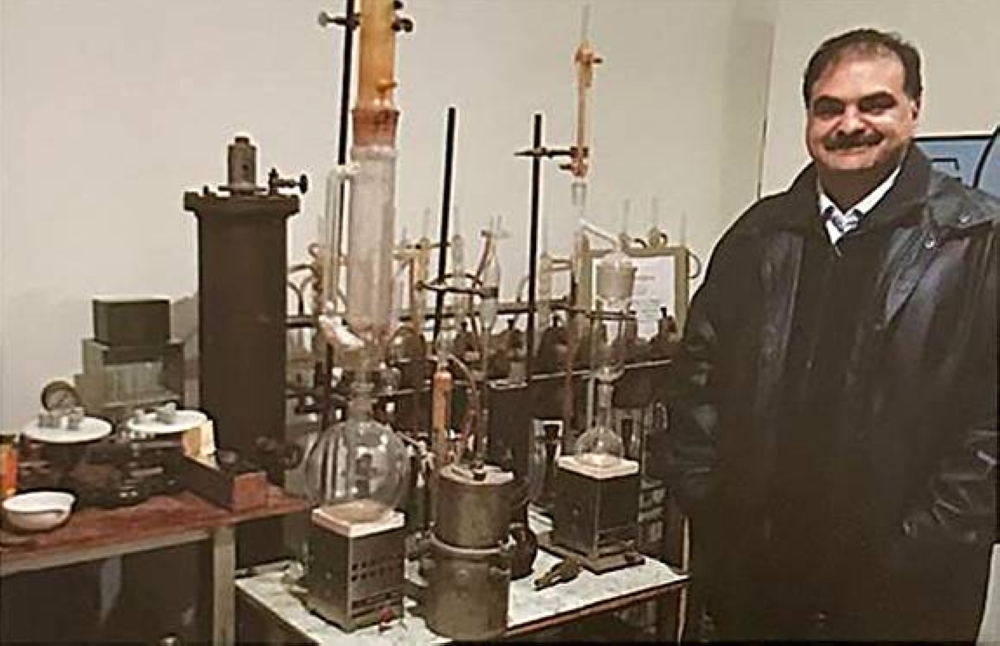Dar Al-Tafahum in Beirut, in collaboration with Dar Al-Thaqafa, has released the English edition of “Petroleum Industry Pioneers (1850–1950)” by researcher and historian Dr Ibrahim Abdul Karim Kreidieh. The book documents the history of Qatar’s oil and energy industry, tracing the early exploration efforts that marked the beginning of an industry which profoundly shaped Qatar’s renaissance from the 1930s onward. It also features rare photographs and archival documents on Qatar’s oil history, many published for the first time.
Around the world, petroleum has been known by many names, including black gold, petroleum, tar, gasoline, black oil, coal oil, heavy oil, and others.
The book underscores the pioneering role of HE Sheikh Hamad bin Abdullah Al Thani, described as the founder of Qatar’s petroleum industry. In addition to his position as Crown Prince, he effectively acted as Minister of Energy, joining geologists on most exploration missions, supporting their work, and actively participating in the extraction process. He personally travelled to several regional countries to secure essential equipment at his own expense and closely supervised every stage of exploration, extraction, and refining. Sheikh Hamad also led the development of Dukhan city, Zakreet port, and the transportation routes connecting them to Doha.
Sheikh Hamad invested much of his family’s wealth to ensure the success of oil as a strategic investment, with lasting economic and social benefits for his country, its people, and his family. His grandfather, Sheikh Mohammed bin Thani bin Thamer, was one of the region’s wealthiest and most influential figures, while his great-grandfather, Sheikh Jassim bin Mohammed bin Thani—the founder of the State of Qatar—was a leading merchant in ships and natural pearls across the Gulf. Drawing on this family legacy, Sheikh Hamad channeled their considerable wealth into realising Qatar’s oil ambitions.
According to Dr Ibrahim Kreidieh, the book is particularly significant for its detailed account of Qatar’s earliest oil discoveries, illustrated with exclusive documents and photographs—a period largely overlooked by previous studies. These early years set the stage for the key milestones in Qatar’s oil history: the 1935 concession granted to the Anglo-Persian Oil Company, the discovery of the first oil well in Dukhan in 1939, the suspension of exploration and production during World War II, the first oil shipment export in 1949, and the rapid expansion of exploration and discoveries throughout the 1950s and 1960s. By the 1970s, the establishment of state-owned companies to oversee oil and gas development helped position Qatar as a global leader in the production and export of liquefied natural gas.
“Petroleum Industry Pioneers” also highlights the prominent figures who played key roles in Qatar’s oil discoveries. Among them are William D’Arcy, founder of the Anglo-Persian Oil Company, which later became Anglo-Iranian Oil Company and eventually transformed into British Petroleum Company in 1954; Dutch explorer Jean Kessler, a key founder of Royal Dutch Petroleum, later merged with Shell; and New Zealand explorer Frank Holmes, widely known as Abu al-Naft, “Father of Oil” in the Gulf.
The book also features Calouste Gulbenkian, a Turkish-Iraqi-British-Portuguese oil intermediary; American entrepreneur Joseph Cullinan, founder of Texaco, one of the world’s leading oil companies at the time; and Japanese entrepreneur Yataro Iwasaki, founder of Mitsubishi, who contributed significantly to the global oil industry.
Other figures include British colonial administrator George Goldie, a pioneer of oil operations in Nigeria and Niger; American businessman Lyman Stewart, co-founder of Union Oil Company in California; Lázaro Cárdenas, the driving force behind Mexico’s state-owned oil operations; Henry Flagler, a key figure in Pennsylvania and Cleveland oil ventures and partner of Rockefeller in founding Standard Oil Company and Juan Gomez, a founder of Venezuela’s oil industry, under whose leadership production and exports flourished, opening the door to global oil companies.
The book also highlights many other figures who played key roles in shaping the oil industry. By documenting these pioneers and the development of Qatar’s oil sector, it provides a detailed and lasting record that will remain an essential reference for the early discovery, growth, and production of oil in the country.
